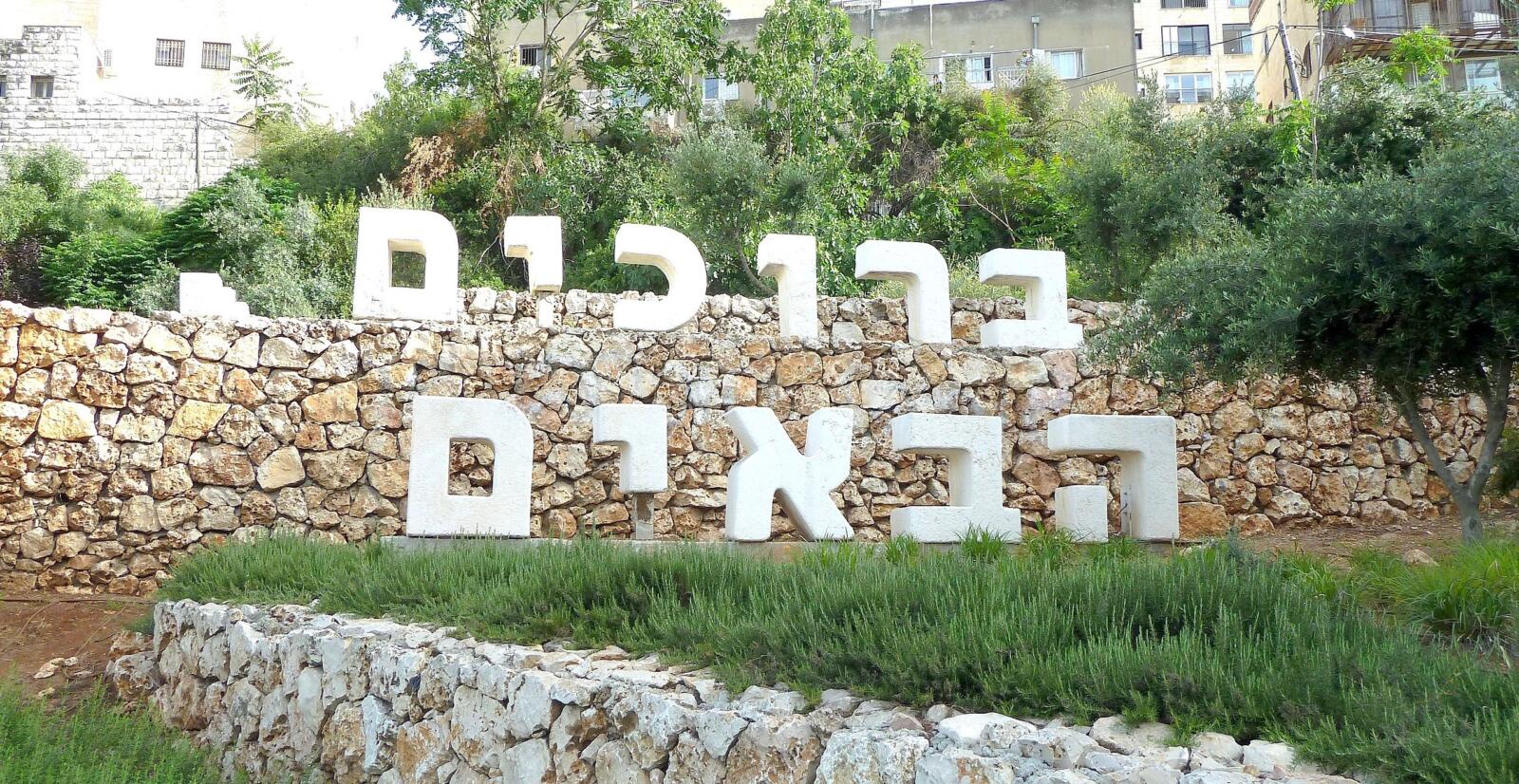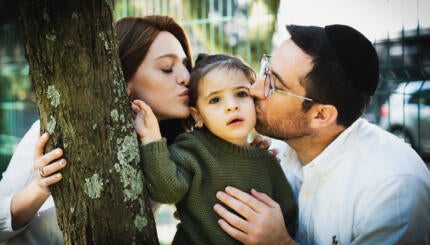Hebrew is the language of the Jewish Bible and the modern state of Israel. Jews have traditionally referred to it as lashon hakodesh, the holy tongue — the language of God and the angels. Jewish mystics believe its words, even its letters, hold enormous power. But Hebrew has long been used for mundane purposes as well. In the medieval period, Jewish merchants and travelers used the sacred language as a way to communicate with Jews in other parts of the world. Today, it is the first language of millions of people, most of them living in Israel.
There’s no better way to get started with Hebrew than by learning some basic greetings. Whether you’re planning a trip to Israel or you’re just at a synagogue or visiting a local Israeli restaurant, give some of these a try:
Shalom (shah-LOME): The Hebrew word for peace, which literally means wholeness, also serves as the best-known Hebrew greeting. It also doubles as “good-bye.”
With your help, My Jewish Learning can provide endless opportunities for learning, connection and discovery.
Shalom aleichem (shah-LOME ah-LAY-khem): A fuller greeting than a simple shalom is the phrase shalom aleichem, which means “peace be upon you.” The traditional response is to reverse the words and say it back: aleichem shalom. Shalom Aleichem is also the name of a poem traditionally sung at the Friday night Shabbat dinner table.
Mah Shlomcha/Mah Shlomeich (mah shlome-KHAH, mah shlo-MAYKH): Literally: “What is your peace?” This phrase is a casual way to say hello and inquire how someone is doing. Mah Shlomcha is directed to someone who is male and mah shlomeich is for a female.
Mah Nishma (mah neesh-MAH): This one means “What is heard?” It’s another friendly way to ask someone how they are doing.
Mah Koreh (mah ko-REH): What’s happening?
Mah Hadash (mah khah-DAHSH): What’s new?
Mah Ha’Inyanim (mah ha-een-yah-NEEM): Literally: “What are the matters?” In other words: What’s going on?
Baruch Haba/Bruchah Haba’ah (bah-ROOKH ha-BA/broo-KHAH ha-ba-AH): Welcome. The literal translation is “blessed is the one who comes.” Baruch Haba is used for someone who is male, while bruchah haba’ah is for someone who is female.
Boker tov (BO-ker tove): Good morning. The traditional response is boker or, meaning morning of light.
Tzohorayim tovim (tzo-ho-RAH-yeem to-VEEM): Good afternoon.
Erev tov (EH-rev tov): Good evening.
Laila tov (LY-lah tov): Good night.
Want to learn more Hebrew, one word at a time?
Sign up for My Jewish Learning’s Hebrew Word of the Day email series.
Looking for Hebrew greetings for special occasions? Check out these other resources:
How to greet someone on Shabbat.
How to greet someone on Rosh Hashanah.



